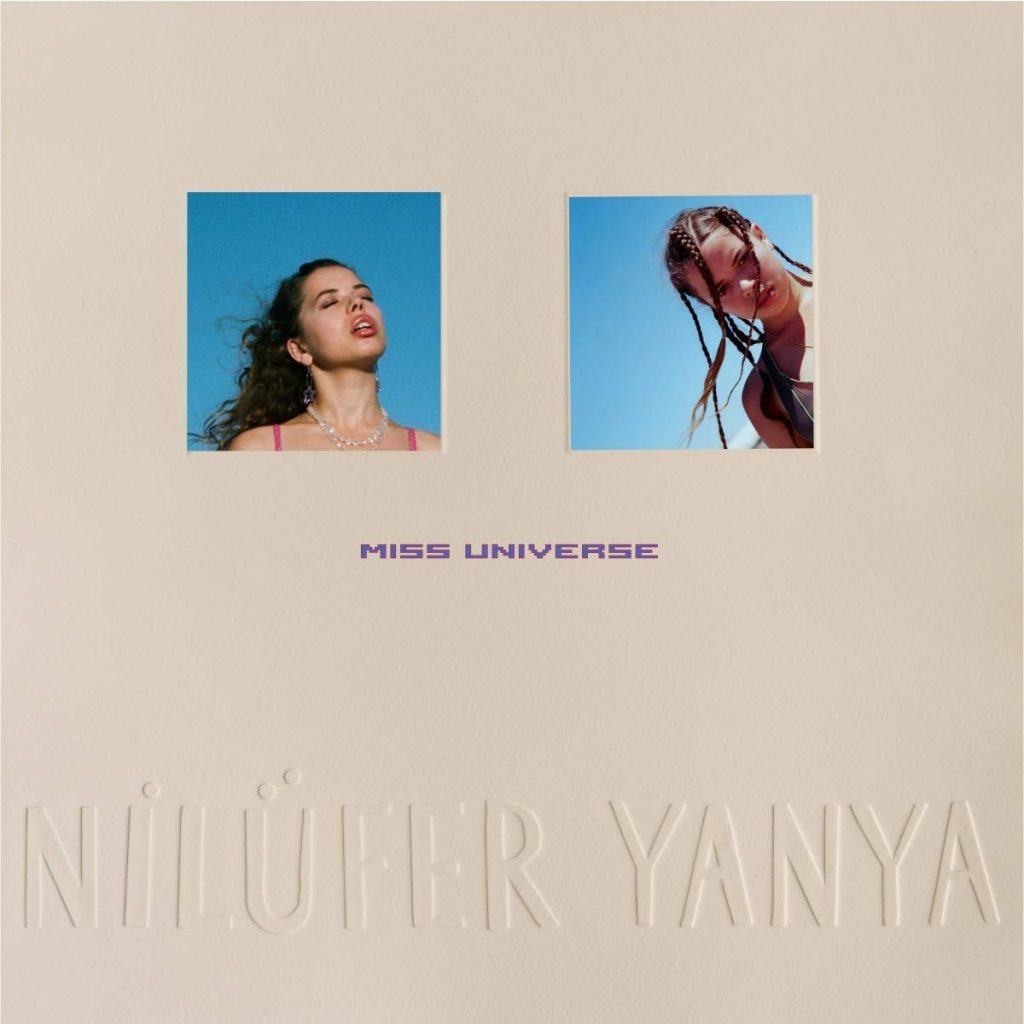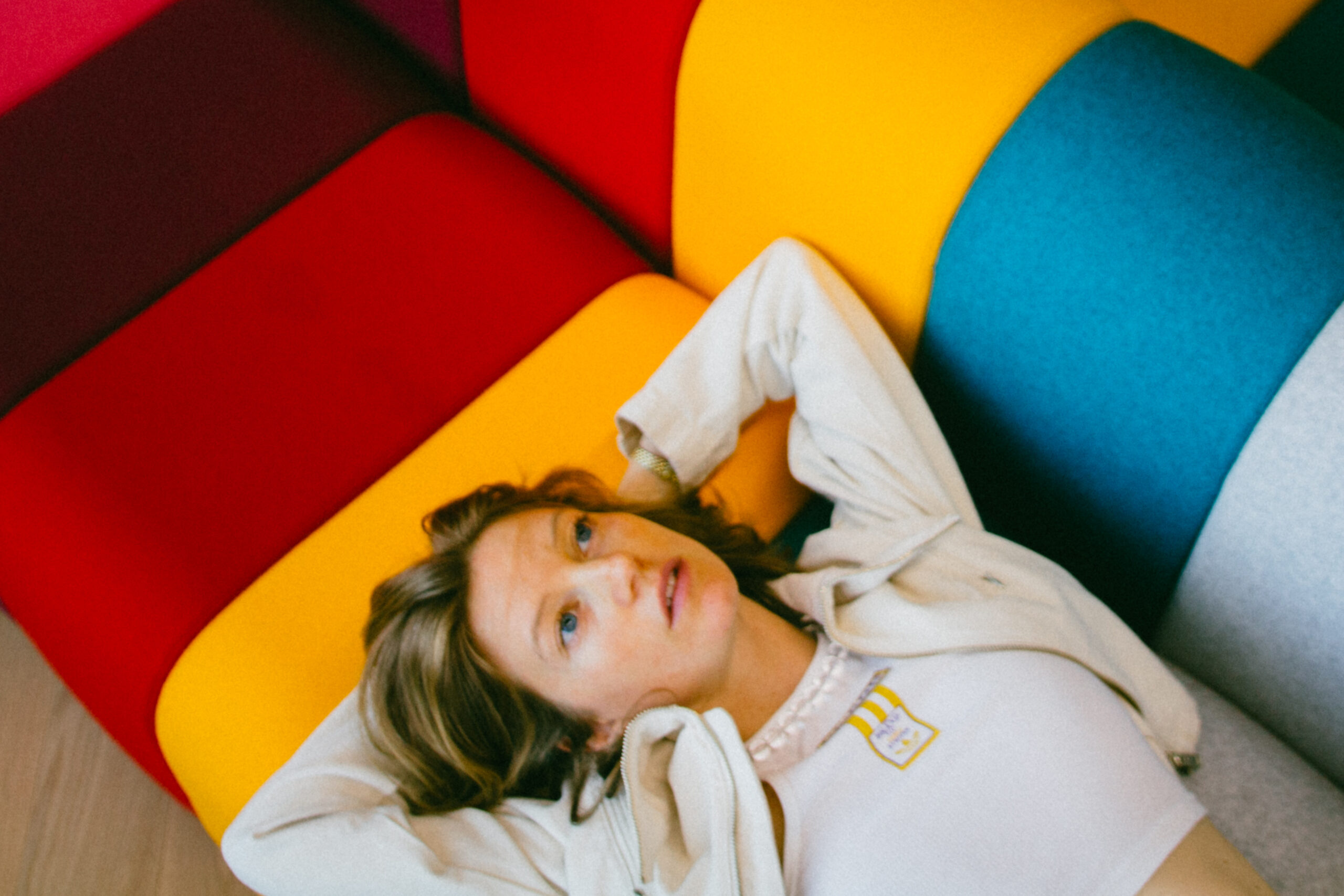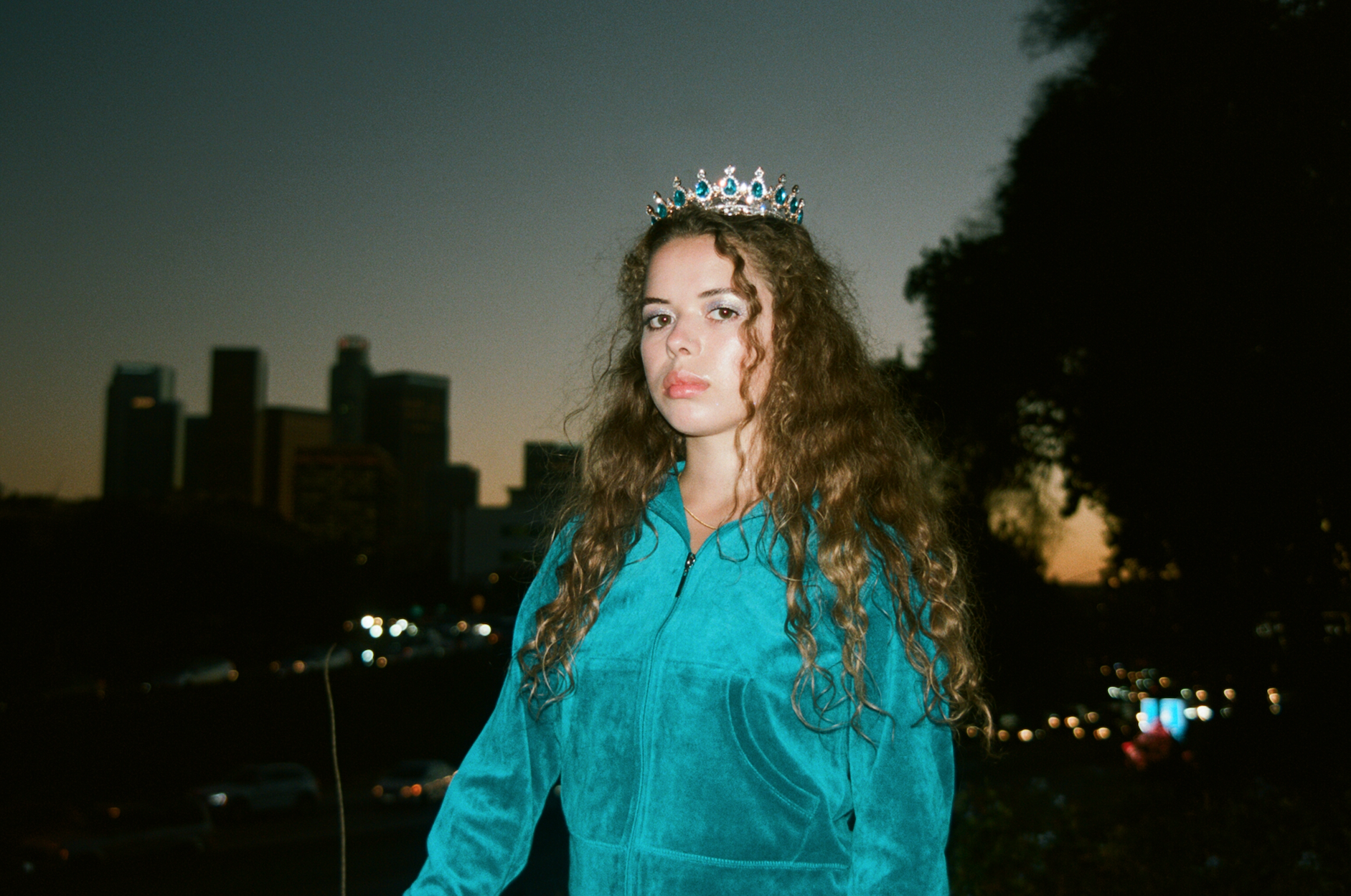Foto-© Molly Daniel
Nilüfer Yanya ist schon vor ihrem Debütalbum – das heute bei PIAS erscheint – kein echter Geheimtipp mehr. Die Musikerin wird als vielversprechendste Newcomerin aus dem UK gehandelt, wo sie 2018 sogar auf der berühmten BBC Sound of 2018-Liste landete. The Guardian beschreibt ihre LP Miss Universe als „anxiety dreams from a true original“. Alles was Yanya macht, scheint smart, unaufgeregt und vor allem lässig. Im April kommt sie für vier Shows nach Deutschland. Dass sie das mit der Liste gar nicht so aufregend findet wie der Rest der Welt, sie lange Zeit von Song zu Song dachte und wieso das Unterbewusstsein beim Songschreiben essenziell mitarbeitet, erzählt die Londonerin beim Interview in Berlin.

Your first album Miss Universe comes out this Friday. Before that you have released quite a few songs and two EPs, why did you wait so long to put out your album?
The first time I properly released a song with the Small Crimes EP, I was 21. And I was new to the whole process of releasing music. If I had released an album straight away, it wouldn’t had been the right time. Also, I wasn’t thinking about making an album, I was thinking about putting one song out, then two songs and then maybe an EP… It takes a while to be like, “Okay, I want to do an album now.”
So, you wanted to test the waters before you wanted to put the whole thing out?
Also putting out singles – that was really exciting; putting an EP out was really exciting. And then after two EPs, I was like, “I don’t want to do more EPs right now”.
Your EPs and your singles have received great reviews, your music has been praised at quite influential places. Regarding your album – did it put more or less pressure on you?
Probably more pressure. But I didn’t realize how many people would be interested in the album. If you only bring out a few things and a song gets some attention, then you think, people could just want one more song. I didn’t really think that people want to know about the album. I just thought, it’ll come out and then maybe a few people like it. I didn’t think, I’ll talk about it so much before it comes out.
You also have been on the BBC Sound of 2018 list. Do you think that things like that can still things change careers and what did it mean for yours?
That’s interesting, because I spoke to a few people about it. I personally had never heard of the poll before in my life and I’m from the UK. I didn’t know it was a big thing. But in the rest of Europe, people really come and talk about it. But the winner, Sigrid, she’s already done really well. So, it’s kind of a funny thing, to pick people that have already done well. So, to me, it feels like there’s not much of a point. For her career, it’s not going to make a difference. For me it was good, but I didn’t know what it was, to be honest. I had never heard of the Sounds list, so it was just a nice surprise.
I have read that both your parents are artists and you grew up in an arty environment. Have you found your inner musician quite early?
I was always writing songs and I always had ideas for songs, and I started piano when I was young. But it didn’t feel like my instrument. I wanted to play guitar for a long time. And I still feel that way about guitar that I need to become more of a musician and do more music and study music instead of just write songs.
Well, you have been mentored by Dave Okumu from The Invisible.
He was a guitar teacher at school, so he was teaching lots of people. He was a very inspiring person to be around. We did one track on the album together and he also produced it.
So, your life has been dominated by music and songwriting from an early stage: what inspires you? How does your songwriting usually work?
Probably music. It inspires me and I come up with something to play. You just have one idea in your head and you’re coming to just push it as far as it can go and then come up with another idea for another section…
Would you say that has changed over time?
Not really. I have found different ways of working with other people. When you’re working in studios with different people, it’s different from working by yourself, because you have more choices available to you. But you really have to get into the same mind frame, that doesn’t change. But it has become harder for me to do that.
Why?
When you start writing songs, there’s no rules in your head about what the song is going to be like. You write one song and then you judge it, what is good, what is bad. And then you start to think, “This is what you should do, and this is what you should do…”
So, you start comparing yourself with your former self?
Yes! Basically, you have made your own rules, but then you have to break your own rules. Sometimes I listen back to stuff from a long time ago and I think that I really knew I was doing, even though I didn’t know what I was doing. And now that I know what I’m doing, I don’t know anything.
It sounds like the more you know, the harder it gets. Do you think, self-reflection can limit you?
Well, I like to think that my songwriting developed. But sometimes I think it hasn’t. Maybe, I’m just fighting harder to say what I want to say, because – life…
Sometimes you write as a character and I have read that you take that you want to put some distance between yourself and the lyrics, but still write truthfully. Do you feel like the characters allow you to get closer to certain truths as it’s detached from you as a person?
Yeah, but not so much the characters, but the songs themselves, definitely. Sometimes I write something, and I think it’s about one thing and then a few months later, I’ll be singing it on stage and then I’ll be like, “Oh my God. It actually means this”. I didn’t even know what it meant at the time.
It comes from some other place?
Your subconsciousness has a lot more to do with it than you think. It’s like dreaming.
You have also said that you like music that sounds like music. Does that mean you want your music to be raw to some extent?
Yes, but I’m getting more into different sounds and exploring my music in other styles. I still think, it can sound organic. Well, I’m not really interested in making something really polished and perfect. The energy can get lost that way and things can get flat and that’s just a bit boring for me.
You’ve been on tour with Interpol last year. Was that your first big tour? And how did you experience playing such big venues?
I toured with Fleet Foxes in the summer in America. I think the venues were about the same size and it was the same length, it was about two weeks. But it was cool, because in Europe we’d only played smaller venues. So, in Europe and in the U.K., it was definitely the biggest. The bigger venues really change things and it makes you think about your show and your sound in a different way. We definitely found that the smaller venues were a bit better for us.
How does it feel to be on tour with such big stars?
It’s just weird, to be honest. When I was younger and I couldn’t really play that well and I couldn’t really sing that well, I wasn’t really confident basically. And I remember having Interpol music on my iPod and listening to it, walking around and going to school. It’s just really strange, how life pulls you back. I was thinking of that when I was playing on that tour.
In 2017 you have played in Manchester one day after the suicide attack. I imagine that to be intense, too. But it’s also a sign for the power of music to connect people in difficult and sad times.
We were with Broken Social Scene and I feel that for them it must have been more difficult, because they had to decide if they wanted to do the show and we basically just had to do what they did. But people came out that night, because their favorite band was playing, they wanted to go and see the Broken Social Scene. That only shows the power of music. They didn’t want to waste this opportunity, even with fear that must have been there.
Talking about the power of music and art: you’re part of the Artists in Transit initiative you have founded with your sister. Can you tell us about your experiences within the project?
We are working with a small group of people in London, who are more and more like our friends now. We do different art workshops in unofficial camps in Athens. And in a way, it’s a really hard thing, because there are people’s lives on the line and they’re waiting, and they don’t know what they’re doing. In that sense, it’s very sad. But generally, our whole experience has been positive and we think that small part of their experience, the refugees’ experiences and the experiences from our friends over there, when we’re working together, it’s positive as well. So it’s a positive thing for everyone to make friends, getting to know people, and seeing what you can do creatively. All we are doing is starting up a conversation. We want to do more workshops in London as well. It’s all about connecting with other artists – one of our friends, she does this thing with plants, another one is a singer… We’re really just connecting different things all the time and I think it’s all positive.
Do you think that artists like yourself, who reach millions of people, should use their voices for political issues? Do you see a moral obligation of art in general and music in particular to be political?
I think, people should do what they think is right, regardless of your kind of platform or whatever that means. There’s always someone to talk to about it. This space is really good for me to be able to talk about it, for example Artists in Transit, but if I wasn’t here, you can always speak to someone else about it.
One thing in the music industry is certainly getting more political: women have become more and more outspoken about inequalities, double standards, and lacking diversity. What’s your point of view on that debate?
To be honest, I feel like I didn’t really have the experience too much of it before. Only now, it has become more evident, but also now I’m becoming older, I can see things differently. I think it’s the same within any industry and within any kind of job in a way. You must be really sure about what you’re doing and why you’re doing it, which is always a good idea. I think, women have a responsibility to think about it that way. It’s almost like every woman represents every woman. So, you need to think responsibly about the choices you make. But obviously, when you’re so young and people put pressure on you, it’s just not fair.
Nilüfer Yanya Tour:
17.04. Nochtwache, Hamburg
18.04. Berghain Kantine, Berlin
22.04. Ampere, München
25.04. Blue Shell, Köln









